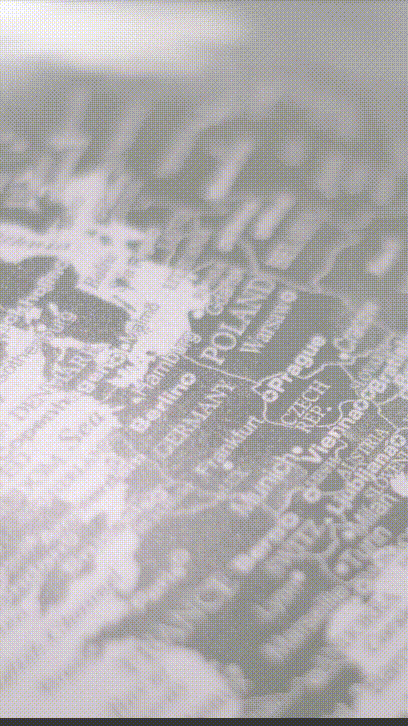Juveniles and undersized fish in small-scale fisheries: gillnets are not less implied than trawling
DOI:
https://doi.org/10.47193/mafis.3522022010501Keywords:
Artisanal fisheries, bycatch, fishery management, BrazilAbstract
Of particular concern in commercial fishing catch is 'size bycatch', i.e., the death of early stages of resources that would reach a marketable value when they turn into adults. This event is frequently associated with trawling because of the lower size selectivity of this gear as compared to gillnets. However, this is expected when small-scale fisheries (SSF) employ gillnets simultaneously in setnets + driftnets that mix multiple mesh sizes. This work analyzes fishing captures and compares characteristics of fish catch from gillnets and trawlers with respect to size at first maturation, legal size of capture, and expected discards. Data were obtained from 2007-2021 for SSF in Southern Brazil. A total of 112 fish species were represented in the data. Gillnets exploited fewer species than trawlers; however, most of these constitute fishing resources in the study region. Of the 19 species whose maturation size is known, nine occurred in gillnets as juveniles, and of the 14 species for which the legal size of capture is established, seven occurred in gillnets in prohibited sizes. Gillnets and trawlers presented size bycatch and affected different species between them, with four resources that were present in bycatch from both gillnets and trawlers. The broad range of mesh sizes employed by SSF warns of the discarding of undersized captures, and stresses the importance of policies addressing gillnet management.
Downloads
References
Afonso MG, Chaves PT. 2021. A pesca de emalhe costeiro de pequena escala no litoral do Paraná: um estudo de caso para a conservação. Rev CEPSUL Biodiv Cons Mar. 10: e2021001. DOI: https://doi.org/10.37002/revistacepsul.v10.1754e2021001
Alarcón Vélez JR, Salazar Céspedes CM, Guevara Carrasco R, Aubone A, Chacón G, Cornejo R, Garcia JC, Hanoza F, et al. 2014. Experiencias de selectividad con red de arrastre de fondo utilizando grillas de selección aplicado a la merluza peruana (Merluccius gayi peruanus). Rev Invest Desarr Pesq. 25: 83-95.
Alves PMF, Arfelli CA. Tomás ARG. 2012. Selectivity of bottom gillnet of Southeastern Brazil. Bol Inst Pesca. 38 (4): 275-284.
Armstrong DW, Ferro RST, MacLennan DN, Reeves AS. 1990. Gear selectivity and the conservation of fish. J Fish Biol. 37 (A): 261-262.
Braun AS, Fontoura NF. 2004. Reproductive biology of Menticirrhus littoralis in Southern Brazil (Actinopterygii: Perciformes: Sciaenidae). Neotrop Ichthyol. 2: 31-36. DOI: https://doi.org/10.1590/S1679-62252004000100005
Cardoso LG, Bugoni L, Mancini L, Haimovici M. 2011. Gillnet fisheries as a major mortality factor of Magellanic penguins in wintering areas. Mar Pollut Bull. 62: 840-844. DOI: https://doi.org/10.1016/j.marpolbul.2011.01.033
Cardoso LG, Monteiro DS, Haimovici M. 2021. An assessment of discarded catches from the bottom pair trawling fisheryin southern Brazil. Mar Fish Sci. 34 (2): 197-210. DOI: https://doi.org/10.47193/mafis.3422021010609
Chaves PTC, Almeida MP, Platner M. 2019. Tubarões e raias como captura incidental na pesca artesanal do litoral do Paraná: condição reprodutiva e variações sazonais em composição e abundância. Arq Cien Mar. 52: 7-23.
Chaves PTC, Nogueira AB. 2018. Biologia reprodutiva do robalo-peva, Centropomus parallelus (Teleostei), na Baía de Guaratuba (Brasil). Acta Biol Paran. 47: 69-84.
Chaves P, Robert MC. 2003. Embarcações, artes e procedimentos da pesca artesanal no litoral sul do Estado do Paraná, Brasil. Atlantica. 25: 53-59.
Chaves PT, Silva AVF. 2019. Recursos-alvo que são também bycatch, e recomendação para a gestão da pesca de emalhe no litoral do Paraná, Brasil. Rev CEPSUL Biodiv Cons Mar. 8: 1-11. DOI: https://doi.org/10.37002/revistacepsul.vol6.670e2017004
Chaves PTC, Vaz-dos-Santos AM, Birnfeld PO. 2021. Population dynamics of Scomberomorus brasiliensis from a small-scale fishery of the Southwestern Atlantic Ocean. Ocean Coast Res. 69: 1-17. DOI: https://doi.org/10.1590/2675-2824069.20-016pdtdcc
Cheng JJ, Tien-Hsi C. 1997. The incidental capture of five species of sea turtles by coastal setnet fisheries in the eastern waters of Taiwan. Biol Conserv. 82: 235-239.
Colonello JC, Menni RC. 2011. Reproductive biology of the lesser guitarfish Zapteryx brevirostris from the south-western Atlantic Ocean. J Fish Biol. 78: 287-302. DOI: https://doi.org/10.1111/j.1095-8649.2010.02864.x
Del Puente SV, Chaves P. 2009. Atividade reprodutiva do peixe-espada, Trichiurus lepturus (Teleostei), vulnerável à pesca de pequena escala no extremo-norte do litoral de Santa Catarina, Brasil. Biotemas. 22: 77-84.
[FAO] Food and Agriculture Organization of the United Nations. 2016. Technical and socio-economic characteristics of small-scale coastal fishing communities, and opportunities for poverty alleviation and empowerment, by Uwe Tietze. FAO Fisheries and Aquaculture Circular. 1111. 136 p.
[FAO] Food and Agriculture Organization of the United Nations. 2020. Report of the expert meeting to develop technical guidelines to reduce bycatch of marine mammals in capture fisheries. Rome, Italy, 17-19 September 2019. FAO Fisheries and Aquaculture Report. 1289. 85 p. DOI: https://doi.org/10.4060/ca7620en
Freiría J, Chocca JG, Marin Y, Gonzalez B, Beathyate G. 2014. Diseño y ensayo de redes de arrastre de fondo orientadas al escape de juveniles. Rev Invest Desarr Pesq. 25: 59-73.
Froese R, Pauly D. Editors. 2021. FishBase. https://www.fishbase.org.
Hout A, Paighambari SY, Eighani M, Broadhurst MK, Bayse SM. 2021. Utility of gillnets for selectively targeting penaeids off Iran. Aquaculture and Fisheries. DOI: https://doi.org/10.1016/j.aaf.2021.02.002
Huse I, Løkkeborg S, Soldal AV. 2000. Relative selectivity in trawl, longline and gillnet fisheries for cod and haddock. ICES J Mar Sci. 57: 1271-1282. DOI: https://doi.org/10.1006/jmsc.2000.00813
Kalayci F, Yeşilçiçek T. 2014. Effects of depth, season and mesh size on the catch and discards of whiting (Merlangius merlangus euxinus) gillnet fishery in the Southern Black Sea, Turkey. Turk J Fish Aquat Sci. 14: 449-456. DOI: https://doi.org/10.4194/1303-2712-v14_2_15
Macpherson E, Duarte CM. 1991. Bathymetric trends in demersal fish size: is there a general relationship? Mar Ecol Prog Ser. 71: 103-112.
McCombie AM, Berst AH. 1969. Some effects of shape and structure of fish on selectivity of gillnets. J. Fish Res Board Can. 26 (10): 2681-2689. DOI: https://doi.org/10.1139/f69-260
Misund OA, Kolding J, Fréon P. 2002. Fish capture devices in industrial and artisanal fisheries and their influence on management. In: Hart PJV, Reynolds JD, Editors. Handbook of fish biology and fisheries. Vol. 2. Fisheries. Malden: Blackwell Publishing, p. 13-36. DOI: https://doi.org/10.1002/9780470693919.ch2
MMA 2005. Instrução Normativa MMA, de 22 de novembro de 2005. Estabelece o tamanho mínimo de captura de espécies marinhas e estuarinas do litoral sudeste e sul do Brasil. Diário Oficial da União, Brazil, 24/November/2005.
MMA 2006. Instrução Normativa IBAMA, de 5 de janeiro de 2006. Proíbe, no Município de Canavieiras, no Estado da Bahia, a captura, o desembarque, o transporte, o armazenamento, o beneficiamento e a comercialização das espécies que especifica. Diário Oficial da União, Brazil, 05/January/2006.
Muniz E, Chaves PT. 2008. Condição reprodutiva da betara preta, Menticirrhus americanus (Teleostei, Sciaenidae), na pesca realizada no litoral norte de Santa Catarina, Brasil. Acta Sci Biol Sci. 30 (4): 339-344. DOI: https://doi.org/10.4025/actascibiolsci.v30i4.1230
Nogueira AB, Chaves PT, Robert MC, Aguiar KD. 2011. Participação da fisiografia local na composição dos atributos e estratégias de pesca no sul do Brasil. Bol Inst Pesca. 37: 13-30.
Olin M, Malinen T. 2003. Comparison of gillnet and trawl in diurnal fish community sampling. Hydrobiologia. 506-509: 443-449.
Pina JV, Chaves P. 2009. Incidência da pesca de arrasto camaroeira sobre peixes em atividade reprodutiva: uma avaliação no litoral norte de Santa Catarina, Brasil. Atlantica. 31: 99-106.
Pinheiro E. 2016. Atividade reprodutiva de peixes no arrasto camaroeiro: algo mudou após dez anos? Monografia apresentada como requisito parcial para obtenção do título de Bacharel em Ciências Biológicas, Setor de Ciências Biológicas, Universidade Federal do Paraná. Curitiba, 46 p.
Reis EG, Pawson MG. 1999. Fish morphology and estimating selectivity by gillnets. Fish Res. 39 (3): 263-273. DOI: https://doi.org/10.1016/S0165-7836(98)00199-4
Robert MC, Souza MAM, Chaves PTC. 2007. Biologia de Paralonchurus brasiliensis (Steindachner) (Teleostei, Sciaenidae) no litoral sul do Estado do Paraná, Brasil. Rev Bras Zool. 24: 191-198.
Romero RM, Moraes L, Santos M, Rocha G, Cetra M. 2008. Biology of Isopisthus parvipinnis: an abundant sciaenid species captured bycatch during sea-bob shrimp fishery in Brazil. Neotrop Ichthyol. 6: 67-74.
Santurtún M, Prellezo R, Arregi L, Iriondo A, Aranda M, Korta M, Onaindia I, Garcia D, Merino G, Ruiz J, Andonegi E. 2014. Characteristics of multispecific fisheries in the European Union. Directorate-General for Internal Policies, Policy Department B: Structural and Cohesion Policies, Fisheries. Brussels: European Parliament. 98 p.
Silva-Júnior CA, Viana AP, Frédou FL, Frédou T. 2015. Aspects of the reproductive biology and characterization of Sciaenidae captured as bycatch in the prawn trawling in the northeastern Brazil. Acta Sci-Biol Sci. 37: 1-8. DOI: https://doi.org/10.4025/actascibiolsci.v37i1.24962
Silvano AM, Hallwass G, Juras A, Lopes PFM. 2016. Assessment of efficiency and impacts of gillnets on fish conservation in a tropical freshwater fishery. Aquat Conserv Mar Freshw Ecosyst. DOI: https://doi.org/10.1002/aqc.2687
Souza LM, Chaves P. 2007. Atividade reprodutiva de peixes (Teleostei) e o defeso da pesca de arrasto no litoral norte de Santa Catarina, Brasil. Rev Bras Zool. 24: 1113-1121.
Sunil Mohamed K, Zacharia PU, Maheswarudu G, Sathianandan TV, Abdussamad EM, Ganga U, Lakshmi Pillai S, Sobhana KS, Rekha J, Josileen J, et al. 2014. Minimum Legal Size (MLS) of capture to avoid growth overfishing of commercially exploited fish and shellfish species of Kerala. Mar Fish Info Serv T & E Ser. 220. 5 p.
Wolff M, Taylor H, Tesfaye G. 2015. Implications of using small meshed gillnets for the sustainability of fish populations: a theoretical exploration based on three case studies. Fish Manag Ecol. 22: 379-387. DOI: https://doi.org/10.1111/fme.12137

Published
Issue
Section
License
Copyright (c) 2021 Paulo de Tarso da Cunha Chaves

This work is licensed under a Creative Commons Attribution-NonCommercial-ShareAlike 4.0 International License.
Authors of articles published in Marine and Fishery Sciences retain copyright on their articles, except for any third-party images and other materials added by Marine and Fishery Sciences, which are subject to copyright of their respective owners. Authors are therefore free to disseminate and re-publish their articles, subject to any requirements of third-party copyright owners and subject to the original publication being fully cited. Visitors may also download and forward articles subject to the citation requirements. The ability to copy, download, forward or otherwise distribute any materials is always subject to any copyright notices displayed. Copyright notices must be displayed prominently and may not be obliterated, deleted or hidden, totally or partially.
This journal offers authors an Open Access policy. Users are allowed to read, download, copy, distribute, print, search, or link to the full texts of the articles, or use them for any other legal purpose within the Creative Commons 4.0 license (BY-NC-SA), without asking prior permission from the publisher or the author. This is in accordance with the BOAI definition of Open Access.
 https://orcid.org/0000-0001-6393-8256
https://orcid.org/0000-0001-6393-8256






















